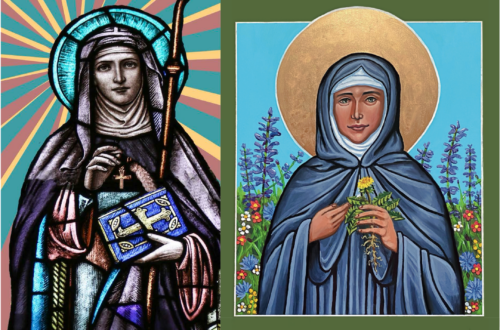Parliamentary Representatives – On Secularism in Europe
The State and Religious Freedom
 |
| Heidi Hautala, Finland © ROBIN CUVILLIER |
From Finland, it’s easy to pick out examples of improper relationships between state power and religious influence. In neighboring Russia, for instance, the Orthodox church has become a tool for an autocratic state to deny internationally recognized human rights. And we’re seeing more examples of this kind of partnership between ultraconservative religious leaders and ultraconservative governments, both committed to rolling back civic freedoms I think Europe has a responsibility to support people living in these countries, who are often victims of persecution and discrimination. This support can come from human rights defenders, from people representing different beliefs or faiths, or it can come from LGBTI people.
I think Europe has a responsibility to support people living in these countries, who are often victims of persecution and discrimination. This support can come from human rights defenders, from people representing different beliefs or faiths, or it can come from LGBTI people.
There is another kind of freedom that is being threatened today, often by this same kind of cooperation between state and religious leaders. There seems to be a growing resistance to women’s right to decide about their own bodies, such as the right to access safe abortion, to have comprehensive sexuality education and obtain contraceptives.
The time for theocratic states governed by one belief system is past. It is the duty of the state to guarantee that there is space for different faiths to co-exist.
Europe’s Diverse Religious Reality
 |
| Cecilia Wikström, Sweden © ROBIN CUVILLIER |
[dropcap]T[/dropcap]he official European Union motto is “United in diversity.” Let’s agree that the diversity is there anyway, but the unity can be questionable from time to time. For instance, right now, the refugee crisis is testing Europe’s understanding of fundamental rights. Certain member states have said they would only welcome Christian refugees but no one else. We should remember that our commitment to respecting human rights applies to everyone, irrespective of which religion you belong to or if you are not a believer at all.
As in Europe as a whole, my own experience of religion has been complex. I have served my church as an ordained priest for 21 years. Occasionally, I have experienced pushback from a variety of sources—including people of various religious backgrounds. But differing religious views are better than no religion at all. Freedom of religion does not mean abolish religion everywhere in Europe, which some people would like to see. I value the religious freedom I enjoy within the European Union.
Growing Opposition to Fundamental European Principles
 |
| Tanja Fajon, Slovenia © ROBIN CUVILLIER |
[dropcap]A[/dropcap]t the moment, there are 82 religious and convictional offices in Brussels and Strasbourg, two of the sites of the European Parliament. Yet only 37 organizations representing churches and religious communities are listed in the transparency register. And there are around 120 religious groups in dialogue with the European Commission. This means that not many faith and belief groups have a formal relationship with EU political entities, but their overall number is huge.
In the corridors of the European Parliament, extremist religious groups are becoming more and more active, especially Christian organizations. They are trying to impose their philosophy, which is very undemocratic—a very ideologically driven agenda that is against all fundamental rights. I call them extremists because these groups go far beyond their religious convictions. They try to oppose fundamental European principles in many ways. They claim that abortion is murder, homosexuality is pedophilia or sex education is collective masturbation at school. These groups are obsessed with abortion and homosexuality. Moreover, they are making many attempts to influence European institutions to pass legislation setting back the clock on these issues. Our challenge is to counter these attacks on recognized human rights.
Why the European Union Needs Secularism
 |
| Sophie in ’t Veld, Netherlands © ROBIN CUVILLIER |
[dropcap]W[/dropcap]hen I was first elected to the European Parliament back in 2004, one of our first tasks as a newly elected parliament was to vote on the new European Commission. This had previously been a kind of routine exercise, but in 2004 there was one particular candidate for the commission—Rocco Buttiglione.
This Italian candidate was being considered for the Commissioner for Fundamental Rights. But his view of women—based on his religious convictions—was essentially that the main purpose of women was to be at home, look after their husbands and have babies. And he stated in a hearing at the European Parliament that homosexuality was a “sin.” Mr. Buttiglione was, of course, entitled to his views, but the majority of Parliament did not feel he was the right person to be in charge of defending and promoting fundamental rights.
In the aftermath of that controversy, the European Party Platform for Secularism was born to fill a secular, ethical vacuum that had existed at the EU since its beginnings.
If certain religious groupings have privileged access to the corridors of power, this is dangerous. It means we are not making policies for everybody anymore.
We have seen ethical policy decisions at the EU, such as the courageous stance on the victims of Boko Haram. The commission reversed an earlier decision and decided to provide the option for abortion to the women living in refugee camps in Syria.



